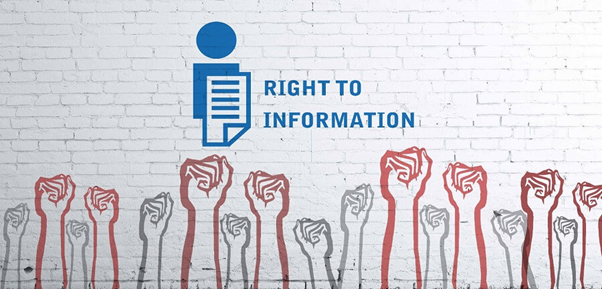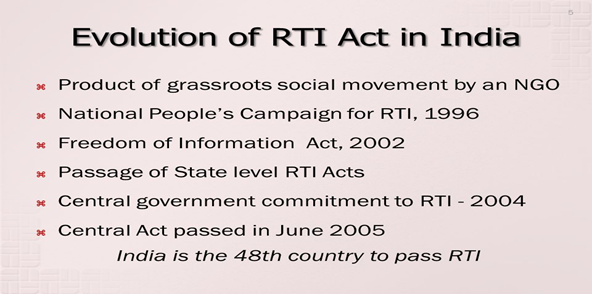Challenges to the efficacy of RTI Act
- Posted By
10Pointer
- Categories
Polity & Governance
- Published
4th Aug, 2022
-
Context

Amidst renewed concern over its functioning across states, the Right to Information Act (RTI) is set to complete 17 years this October.

Concerns Related to RTI Implementation
- On the occasion of 16 years of implementation of the RTI Act in India in October 2021, Satark Nagrik Sangathan has compiled a report on the performance of information commissions across the country based on information accessed under the RTI Act.
- The Report is titled, ‘Report Card of Information Commissions 2020-21’.
- The report accused the various Information Commissions of acting as a major bottleneck in effective implementation of the RTI Law.
Issues facing RTI
- Backlog of appeals: Issues include a huge backlog of second appeals, lengthy wait time for hearings, hesitancy in posting penalties and increasing opacity in the working of the commissions.
- As of June 2021, 2.56 lakh appeals were pending with 26 information commissions in the country.
- CICs downgraded rank: Any serious RTI query or one which concerns more than one government department requires intervention by higher officials, but it is the PIOs from junior ranks who attend hearings and are often clueless.
- Often, it requires a notice to higher authorities, in some cases, the secretary of the department, to elicit the right answer.
- With CICs downgraded in rank, there will be fewer and fewer notices served to the heads of departments and senior officers to appear and answer queries.
- Vacancies: The commissions have been plagued with vacancies, poor choice of commissioners, untrained staff and a non-cooperative set of public information officers (PIOs).
- Threat to some RTI activists: Apart from the PIOs’ general inexperience and unprofessionalism, comes the threat to some RTI activists who seek information to expose corruption.
- According to the Commonwealth Human Rights Initiative (CHRI), across India, 99 RTI activists have lost their lives, 180 assaulted and 187 were threatened since 2006.
- Political proclivity: The attitude of a few commissioners going public with their political proclivities is another cause for concern.
About Right to Information (RTI) Act, 2005
- It sets out the rules and procedures regarding citizens’ right to information.
- It replaced the former Freedom of Information Act, 2002.
- The Right to Information (RTI) Act was enacted by Parliament in 2005 to empower citizens, promote accountability and transparency in the working of the government and contain corruption.
- Recently, the Parliament passed the Right to Information (Amendment) Bill, 2019.
- As per the act, the CIC and ICs will hold office for a term of five years.
- The Amendment removes this provision and states that the central government will notify the term of office for the CIC and the ICs.
- Public Authorities need to make disclosures on various aspects of their structure and functioning. It includes
- disclosure on their organisation, functions, and structure
- powers and duties of its officers and employees
- financial information
- ‘Public Authorities’ include bodies of self-government established under the Constitution, or under any law or government notification.
- For instance, these include Ministries, public sector undertakings, and regulators.
- It also includes any entities owned, controlled or substantially financed and non-government organizations substantially financed directly or indirectly by funds provided by the government.
- The act, in general, promotes pro-active and suo-moto disclosure of information by governments.
- If any information is not available, citizens have the right to request it by a simple letter or email or through online application for a nominal fee.
- The intent behind the enactment of the Act is to promote transparency and accountability in the working of Public Authorities.
|

